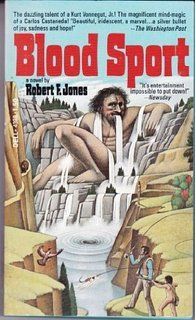Yes. I would have sent you my copy but:
A: I'm kind of a book hoarder. When I like a book I want to keep it on the shelf so I can pull it down and read all or part of it again anytime I want.
Alan, I read Death on the Barrens. Twice; I ran through all three books I’d brought on a trip and chose to re-read Death on the Barrens. Didn’t actually “choose to”, I dang near speed read the other two just so I could have the pleasure of a re-read. I’ve name-stamped the cover for my personal library holdings, and will probably buy another copy to pass along.
(OK, I went back and re-re-read some sections a third time, trying to come to grips with what the hell went wrong)
Grinnell’s life history, family ancestry, occasional Zen koan reflections* and 40 years later trip introspection compliment the telling of the tale. Anyone who has tripped with a group, or even a partner, will recognize the challenges of accommodating different styles, changing group dichotomy and evolving leadership dynamics.
Some of the little anecdotal struggles rang humorously familiar. The 12 foot Black Spruce poles underfoot in the bottom of the canoe being surreptitiously nudged forward by the stern man, and then slowly nudged back by the bow. Excepting the Black Spruce specification I’ve been there and done exactly that in the same wordless way with poles in the bottom of the canoe.
But dang, what the hell happened? I struggled to comprehend how a party of 6 could continue to take day after day off from paddling, even in fine weather, only fart around camp while making daily inventory their food supply and exclaiming “We are far behind schedule, winter is coming and we’re running out of food. . . . Let’s take another holiday”.
Quoted from the book
“Although we took holidays on more than half the days of August, we did occasionally travel down lake”
“Because we had lost the sensation of getting anywhere, we began to spend less and less time actually trying”
“The weather was fine for paddling, but we preferred to hunt, fish and gather berries”
So much for the wisdom of navel gazing. Please remember than when you do a Barrenlands trip. The collective here frets about your stationary SPOT location.
It is a shame that there isn’t a companion volume from Peter Franck’s perspective. The youngest. The only one never to vote to “take a holiday”. So consistently that his companions stopped even asking.
The one who declared, as the food ran out and they dawdled falling further and further behind schedule “This is c-c-c-razy, everyone has gone m-m-mad”. The only one who kept matches in a waterproof container. The only one who didn’t swim at the fatal falls and so rescued five helpless companions.
I would call Peter Franck the savior of that trip.
I would, except that he knew; he recognized the madness and he couldashoulda assumed command or asserted himself, or at least formed a minor cabal insistent on moving the trip along on fair weather days. All Barrenlands mysticism aside their groupthink decision making was inexplicable.
Grinnell’s life retrospective chapter at the end, “The Longer Pilgrimage” is heartbreaking. I won’t ruin that part of the tale, but only say that it is an undeserved twist to his family lineage.
*I do love me a good Zen Koan. Pick a number between 1 and 100 and click randomly:
http://www.ashidakim.com/zenkoans/zenindex.html
